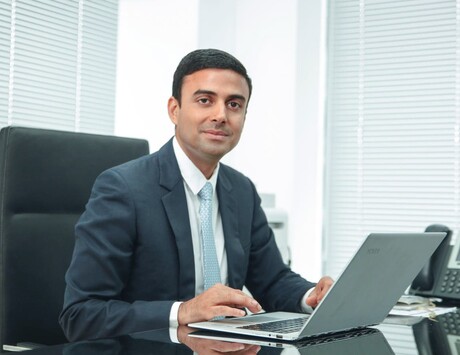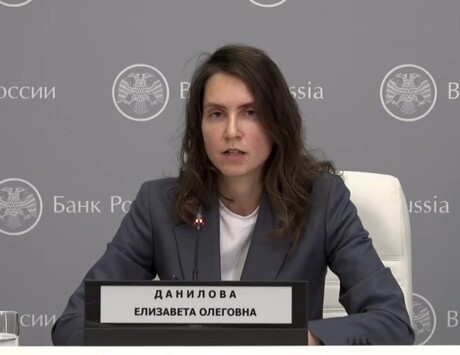EVGENY LEBEDEV
The group is the biggest threat to humanity that the world has faced in the 21st century
It took a picture. The image of little Aylan Kurdi dead on a beach in Bodrum, Turkey, appears at last to have woken the world from its slumber in relation to the horror of modern Syria. Iconic photography has changed the course of history before, most notably during the Vietnam War. Some good may yet emerge from the tragically brief life of a drowned three year-old, if it prompts not only a generous response to the biggest humanitarian catastrophe in Europe since the Second World War, but also – and in my view just as vital – a strong, ruthless international mission to deal with this problem at source. And that means defeating the savagery of so-called Islamic State.
Even young Kurdi's name, containing as it does the name of a long persecuted minority, gives a clue as to the sectarian nature of this crisis. Today, right in front of our eyes, whole civilisations are being expunged, and we cannot save them if we deceive ourselves about the nature and identity of the enemy.
I believe that a militant, radical, mutated form of Islam is the greatest threat to humanity the world has faced in the 21st century. It unites Central Africa with Eastern Asia, and has sympathisers and affiliates from Lahore to - shocking to me - Dewsbury in Yorkshire. But its locus is in the Middle East, and specifically the lawless terrain between what is left of Syria and Iraq. It is true that some of the refugees heading our way - your way - are fleeing Eritrea and Afghanistan. But all the evidence is clear: the majority are Syrian.
I have spent some time in the Middle East, where any attentive visitor can immediately see the traces of truly great civilisations. I fear a generation growing up unaware that ancient Baghdad was home to the world's greatest scholars; that the lands of Persia and Mesopotamia were home to artistic flourishing; that people of different faiths lived and loved happily from Cairo to Constantinople. And at the heart of it all was the majesty and beauty of Syria.
No more. It is hard to overstate the sheer scale of what has been wrought in Syria today. Some 200,000 have perished since the start of the civil war. An astonishing six million of Syria's 22 million people are now refugees, fleeing war and going to unimaginable lengths to find sanctuary. Whole cities, with their own institutions and public services, have sprung up in the makeshift camps. Some neighbouring Arab nations are overwhelmed. Unfortunately they tend to be poorer nations like Lebanon, rather than the richer Gulf states. Saudi Arabia has accepted no refugees, unforgivably.
Syria itself is dissolving, its map changing by the minute. When protesters took to the streets in 2011, President Assad responded with brutality. He is a dictator who has used chemical weapons on his people. But he is a bulwark against the even greater evil of Isis. Some people argue that you cannot argue that one is more evil than the other. Well, I do; and unless and until we eradicate Isis, stability will not return to the region, borders will remain meaningless, and the refugees will grow in number.
These remorseless vermin are fully intent on raping, slaughtering and bombing their way to victory at all costs. It is striking that they have gone after the treasures of Syria's ancient civilisation: they know that they can only claim victory for their perverted faith if they have eradicated the collective memory of the Syrian people, in which several faiths have lived in harmony and mutual respect. That is why I hesitate to say the phrase “modern Syria”: right now, Isis are succeeding in destroying Syria's heritage and ancestry, and reducing the country to something more like a medieval theocracy than modern state.
The West has done little. Thankfully, the mood appears to be changing. Yesterday, UN Secretary-General Ban Ki-Moon admitted that the UN, and by extension the international community, had failed Syria. After events this May I am weary of believing opinion polls, but I note The Sun reported that 52% of the British public now support some form of military intervention in Syria. Over the weekend, Lord Carey, the former Archbishop of Canterbury, added his name to this roster when he called on David Cameron to “crush” Isis.
By far the most persuasive intervention came from the Russian president, Vladimir Putin. Confirming that he has been supporting the Assad regime militarily in its fight against Isis, Putin said: “We really want to create some kind of an international coalition to fight terrorism and extremism.” And then, in words that jumped out at me: “To this end, we [have held] consultations with our American partners - I have personally spoken on the issue with US President Obama.”
For the past few years, tensions between Russia and the West have been high. Events in Ukraine have been one reason; so too has Syria, where Russia, a supplier of arms to the Syrian government, has used its veto at the UN Security Council to stymie America's strategy. I wonder, however, if this crisis - in which Russia, European and American interests in a stabilisation of Syria surely align - is the moment for us to put aside recent Cold War rhetoric and once again unite to defeat a common enemy. There is a historical precedent, after all.
Seventy years ago, Russia and the West were riven by ideological differences. And yet they came together to defeat Nazism. In our time, the greatest threat to humanity is Islamist in nature, and our failure to defeat it is a direct cause of this refugee crisis. I agree with the Financial Times's Edward Luce, who argued yesterday that Syria may come to haunt Obama, because his indecision and false threats about crossing “red lines” has made him look weak.
Obama's whole approach to foreign affairs is conciliatory: witness his rapprochement with Iran and Cuba. Here, then, is a golden opportunity. I do not say Assad is a long-term ally. But Isis is a short-term, mortal danger. Putin is prepared to support efforts to defeat it. So, on the basis of my conversations with them, are some senior members of the government, though what the Labour Party thinks won't be clear until we know its new leader. Let us turn the outpouring of public support for refugees into a strong and co-ordinated effort to tackle the problem at source, with Muslim nations central to any anti-Isis coalition.
To mend relations internationally, neutralise the cancer of Isis, and help the desperate people of Syria and beyond: that is a prize worth fighting for. Putin has shown leadership. Does Britain's political class, so slow to respond to the refugee crisis initially, have the same courage and moral strength? I doubt it - but given public support for action, now would be a good time to prove us sceptics wrong.
This piece first appeared in the Evening Standard.



